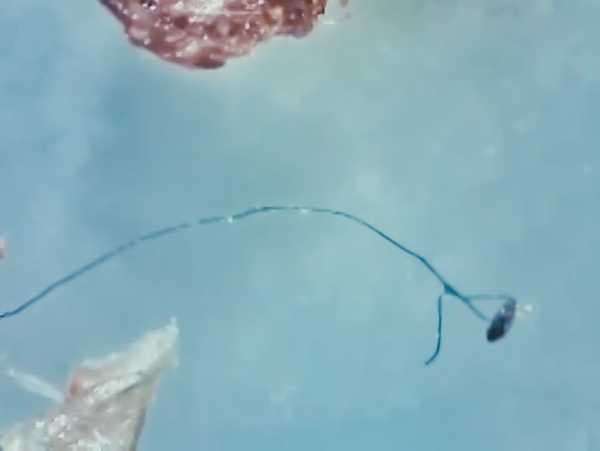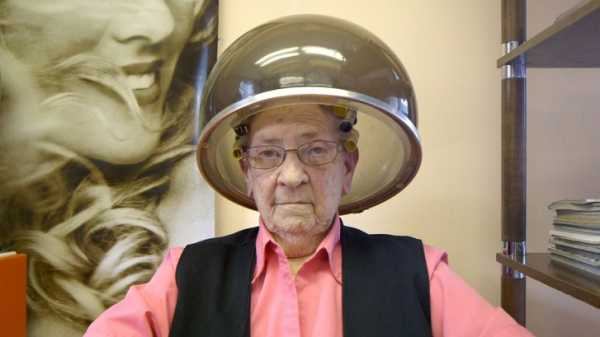
The notion of personal cinema, which is at the heart of American independent filmmaking, is based on the idea of experience. It has been central to moviemaking since, more than sixty years ago, a group of twentyish young French fanatics sought to make movies that would reflect their own experience with the intimate specificity of the novels that they loved. In recent years, independent filmmakers, inspired by the simplicity and the spontaneity of hands-on video equipment—and, owing to that equipment and to the proliferation of homemade videos on cable TV and on YouTube—have sought to leap even more explicitly into that same realm. And no film festival has gathered movies of this sort, at the very front lines of innovative independent filmmaking, as has the Maryland Film Festival, in Baltimore, which in past years has showcased the work of filmmakers such as Josh and Benny Safdie, Amy Seimetz, Anna Biller, and Darius Clarke Monroe. The 2018 edition was held this past weekend, and once again many of the films I saw there included distinctive and original approaches to the exploration of immediate experience—a notion that itself changes in step with cinematic forms and styles. (With its profuse schedule of passionate selections, I never get to see as many as I’d like; some that I’m most curious about will be coming, in June, to BAMcinemaFest, New York’s own foremost independent-film series.)
Christopher Makoto Yogi’s film “August at Akiko’s,” for instance, is yet another bold proof of the first-shot principle, the notion that many great films can be recognized as such from their opening images. The film starts with an extended lyrical reverie that’s as precisely observed and physically detailed as it is transcendently inventive—a long pan shot, past beams and trellises, on a patio giving onto a garden and lush tropical greenery behind it, of an elderly Asian woman performing a candle-lighting ceremony and ringing, with sharp and decisive gestures (and a pair of industrial hearing protectors on her ears), a small bell with a big wooden clapper—with camera moves that are gracefully, contemplatively desynchronized from her rounds.
That woman, Akiko (Akiko Matsuda, playing herself), is the founder of a Zen bed-and-breakfast in a quiet part of Hawaii Island, one where tourists rarely stray, and which is home to a community of Japanese-Americans. It’s Yogi’s own community and his own neighborhood, but one doesn’t need to read that in an interview or hear it in an introduction in order to know that it’s his home. The drama is centered on Alex (Alex Zhang Hungtai), a thirty-six-year-old modern-jazz saxophonist who’s from that region but long estranged from it, and who returns in the hope of seeing his late grandparents’ house again. With no place to stay and nowhere to go, he takes a room in Akiko’s retreat-like hostel, takes part in rituals and common labors there, and wanders about the area, meeting its residents and rediscovering its beauties and mysteries, even as his friendship with Akiko deepens.
Yogi films Akiko, Alex, and their friends and neighbors with generous and loving care, but the face that dominates the movie is the face of the island; he films these locations, the astoundingly varied and nuanced, expressive and inspiring places that formed Alex’s imagination (including a still-active volcano) and that haunt his dreams, with an ecstatic intimacy that fuses with Alex’s own visions. The movie includes some remarkable flashbacks of a surprising simplicity and practicality, in which nature meets culture and wonder fuses with banality, that are piercingly true to the peculiarities and vagaries of memory. In his lyrical specificity, Yogi pursues a mighty idea: the very essence of artistic inspiration. Alex’s music, free jazz in the tradition of John Coltrane and Ornette Coleman, plays a central role in the movie; Hungtai is best known as a musician, he frequently performs music in the course of the film, and the over-all drama of the film is the drama of self-consciousness itself—Alex’s recognition of his experience as the source of his art. As for Yogi, he may not play the saxophone but he plays the cinema, and Alex’s quest is, conspicuously and thrillingly, very much his own.

Photograph courtesy the Penny Lane
The title of Penny Lane’s documentary is extraordinary, because when viewers step up to the ticket window and the clerk asks what they’d like to see, their answer will have to be “The Pain of Others.” Lane’s subject is Morgellons disease, a mysterious condition characterized by fibres emerging from the skin, accompanied by itching, pain, and the feeling that something is crawling or living inside the flesh. It’s widely believed by doctors and scientists to have no physiological basis—yet its sufferers are suffering, and that’s what “The Pain of Others” shows. It’s almost entirely a collection of YouTube videos posted by people with Morgellons (punctuated by a few brief clips of television-news reports about the syndrome—including one about Joni Mitchell, who is a Morgellons sufferer) and is centered on three women who post there, at length and in intimate physical and psychological detail, about their experiences.
The women—whose sets of clips run at great length in Lane’s film, about four or five minutes each—express a wide range of emotions, from despair and fear to hope and rage. Marcia, who’s from Canada, offers a varied range of conspiracy theories to explain the illness (and also extols the virtues of a five-hundred-dollar machine that can provide relief while performing its functions on her nail clippings); Carrie, who’s from Colorado, displays a harrowing range of moods, from suicidal despair to tearful exaltation, and derives hearty encouragement from the benefits she experiences drinking her own urine; Tasha, a young woman who finds temporary relief from a magnetic device, is persuaded by another sufferer that her hair is infected, and, in an act that she experiences as a self-scourging, shaves her head on camera. The abysses of agony into which all three women are plunged are matched by the seeming absurdity, even occasional moments of comedy, that emerge from these women’s frenzied pursuit of relief from their torments, and this contrast provokes the movie’s most agonized paradoxes.
Precisely because medical science hasn’t done much for Morgellons victims, they’re left largely to their own devices, thrust into immediate struggle with their own pain and their self-treatment, with little but a sense of community and mutual recognition to sustain them. The unfathomable and incommensurable pain of their experience—and of their isolation—is doubled by a desperate desire to communicate, share, and self-represent. “The Pain of Others” considers their unusual experiences at the extremes of the public and the private—and Lane, far from merely collecting, compiling, and sharing these videos, is, by the very framework of her observational editing, watching and experiencing them as if in real time, along with the viewer.

Photograph courtesy Brian Ashby
The Maryland Film Festival’s opening-night program always features short films, and Dan Rybicky’s nineteen-minute documentary, “Accident, MD,” moves toward the notion of experience from a broader perspective to a specific one. Here, the director films, in June, 2016, a series of conversations with residents of that oddly named small town in the northwestern corner of Maryland (plus residents of nearby towns in the state, and also in West Virginia and Pennsylvania) on the subject of health care. That’s all there is to it, but what’s clearly at its basis is a sense of furious political urgency. The movie begins with a young woman shaving animals on a farm as she discusses her enlistment for military service—which she explains in terms of the health and dental care that her service will provide her. The affable people who talk with Rybicky deliver a set of extravagant claims regarding health care—all furious at Obamacare, all offering talking points seemingly regurgitated from Fox News or other propaganda—that range in tone from calm anger to quiet frustration to paranoid fury. “Accident, MD” is the passionate work of a civic-minded filmmaker who, in the midst of a Presidential campaign that was fuelled by outlandishly deceptive claims, channels his bewilderment into action; in presenting the insidious power of political propaganda and its irrational effect, it does more, in its nineteen-minute span, to explain the election of a flamboyantly enraged liar than most daily newspaper accounts.
Sourse: newyorker.com






